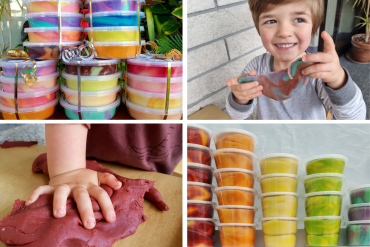By
Mindfulness and meditation have proven beneficial for both parents and children. More and more studies are uncovering the short- and long-term benefits of incorporating mindful parenting practices into families’ lives (1).
Meditation and mindfulness are not mere techniques. They are states of being that bring less suffering, more presence, and peace into one’s life. Once a person has experienced the benefits of these practices and the ways in which they permeate our daily life and being, there is no going back. Mindfulness and meditation practices have a positive impact not only on the practitioner but also the people that surround this individual, including our children.
A Google search offers this simple definition of mindfulness:
A mental state achieved by focusing one’s awareness on the present moment, while calmly acknowledging and accepting one’s feelings, thoughts, and bodily sensations.
Renowned meditation teacher John Kabat-Zinn also emphasizes the importance of noticing “nonjudgmentally” (2) because suffering is caused by the judgments we place on our perceptions.
Individuals who have chosen to apply these practices to their parenting have seen improvements in their own lives and the lives of their children. If you are not convinced of the value of these practices and wonder if they are just a fad, here are 40 benefits meditation and mindfulness can provide for parents and children.
For parents, a meditation and mindfulness practice offers numerous benefits:
- Develops more patience because we do not mix in our problems with those of our child.
- Reduces reactivity because we respond from a calm place instead of from past wounds when children push our buttons.
- Cultivates emotional awareness.
- Allows us to exercise self-regulation.
- Slows down time because we become more fully involved in our child’s life, and so do not miss out on the wonderful and simple moments of their childhood, which goes by too fast.
- Develops gratitude for all the mundane and extraordinary moments with our child.
- Helps us to become in tune with and accepting of our child’s actual needs, thus allowing us to make better choices.
- Promotes secure attachment with our child and a trusting relationship.
- Enables us to be more present, which allows space for us to listen with full attention and be able to validate our children.
- Develops compassionate and non-judgmental awareness in all interactions.
- Facilitates finding pleasure in and appreciating simple things.
- Helps us cope during stressful moments, such as tantrums or emotional outbursts.
- Promotes our ability to model proper emotion management, and this is how children learn best: by imitation.
- Prevents our children from becoming fearful or traumatized by our out of control reactions or screaming.
- Improves parenting interventions (3).
- Reduces stress, anxiety, and depression.
- Improves the immune system, which means parents are healthier (4).
- Promotes greater satisfaction with our parenting skills and therefore with our relationships with our children.
- Facilitates incorporating mindfulness into all aspects of our lives (5).
See next page for how children can benefit from mindfulness and meditation…











